Meet the team
There is a formal membership only for the German NGO, and in order to become a member, a recommendation by an existing member is required. Membership in the NGO is restricted to those who have a realistic possibility to be active members, that is, to read official documents (in German) and to participate in annual general meetings (in Berlin). Since the overwhelming majority of our network members don’t have that possibility, we are keeping formal membership limited to a small group of people in Berlin.
The NGO manages the network by organizing the fora, publishing the annual WHW Report, coordinating discussions and exchange, keeping the list of network members, maintaining relations with UNESCO and Advisory Bodies, and operating the website and facebook site. On the website we inform about WHW and its activities, and keep documents for download. On the facebook site we post information of public interest and share all posts which we receive which are related to World Heritage. We encourage all network members to follow our facebook site because it is an important day-to-day communication tool for the network.
President
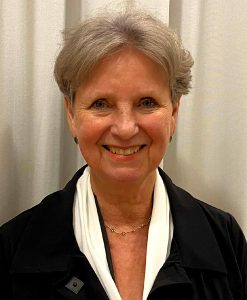
Dr. Dr. hc. Maritta von Bieberstein Koch-Weser
Dr. Maritta R. von Bieberstein Koch-Weser is founder and president of Earth3000, an organization for environment and sustainable development. Since November 2003 she is also CEO of the “Global Exchange for Social Investment – GEXSI”. Maritta Koch-Weser was Director-General of the World Conservation Union (IUCN) from 1999-2000, and serves on the board of WWF Germany. From 1980-1998, she was instrumental in the development of projects and policies in environmental and social issues at the World Bank, most recently as “Director for Environmentally and Socially Sustainable Development / Latin America & the Caribbean Region”. Maritta Koch-Weser has studied Social Sciences and conducted research in Brazil. In 1975, she received her doctorate at the University of Bonn. From 1976-1979 she taught anthropology at George Washington University in Washington DC.
Chair
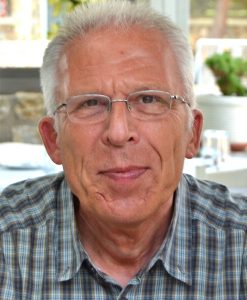
Stephan Doempke
…
Stephan Doempke, born 1955 in Muenster, Germany, studied psychology, cultural anthropology and science of religions in Muenster, Wichita/Kansas and Berlin. His experience in 1978/79 with the spiritual leaders of the Tsistsistas (“Southern Cheyenne”) in Oklahoma led to his decision to commit himself to the preservation of the lands and cultures of indigenous peoples, first of all in North America and the Pacific. In 1989 he joined the founding team at the House of World Cultures in Berlin, and from 1993-1998 coordinated projects in Russia and Central Asia for the German Nature Conservation Union NABU. Later he supported the revitalization of felt-making by nomadic pastoralists in Kyrgyzstan and Mongolia, and was a free-lance consultant with assignments in Ethiopia, Kyrgyzstan, Tajikistan and Montenegro. In 2009 he became UN Programme Coordinator for Culture and Heritage in Albania, and continued his work in Albania as a GIZ expert for UNESCO World Heritage in Gjirokastra. After his return to Berlin in 2014, he founded World Heritage Watch whose chair he has been since.tentor Simple Text
Vice-Chair
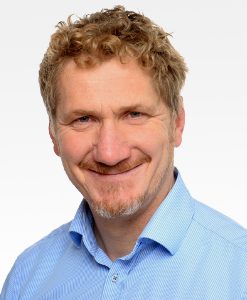
Uli F. Gräbener
…
Uli Gräbener (1970) is a biologist with a broad background in natural sciences. After working for the Russian World Heritage Program of the German Association for Nature Conservation (NABU) from 1995-1999, he served as a seconded Junior Expert at the UNESCO Moscow Office from 1999 to 2004, where he was in charge of the programs for Biosphere Reserves and World Natural Heritage. For the last ten years he has been responsible for monitoring and evaluation, quality management and efficiency in nature protection with WWF Germany. Since August 2015, he is CEO at the Michael Succow Foundation. He is mainly driven by the question how protection and sustainable use of natural resources may be combined.
Vice-Chair
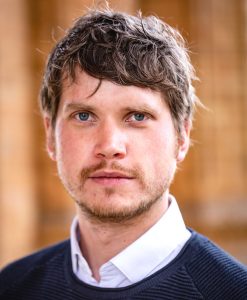
Silvan Rehfeld
…
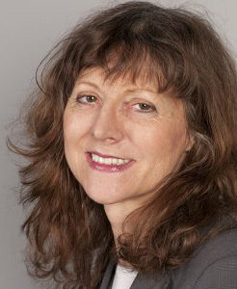
Hiltrud Breyer
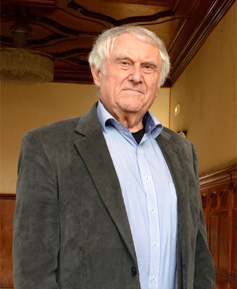
Prof. Dr. Rolf Kreibich
Rolf Kreibich is Professor emeritus for Sociology of Technology, Technology Assessment and Future Science. Born in Dresden, he studied physics and mathematics as well as sociology and economics at the TU Dresden and the HU and FU Berlin. Between 1967 and 1969 he served as Chairman of the Governing Council of the Institute of Sociology, and from 1969 – 1976 as President of Freie Universität Berlin. Until 2012 Kreibich was Scientific Director and CEO of the Berlin-based think tank, “Institute for Futures Studies and Technology Assessment” (IZT). Since 1990 he is also Scientific Director and CEO of the Secretariat for Futures Studies in Gelsenkirchen, Dortmund and Berlin. Rolf Kreibich was member of several Federal and Berlin-State Enquiry Commissions. He also participated in numerous academic advisory boards of government and civil society, and has been one of the figureheads of the struggle to prevent the deletion of Dresden from the World Heritage List. Since 2007 he is member of the World Future Council (WFC). In February 2016 he was elected Chairperson of the “Haus für die Vereinten Nationen e.V.” (House for the United Nations) in Berlin, Germany.
World Heritage Watch e.V.
Statutes
§ 1 Name and Place of Registration, Fiscal Year
1. The name of the Organization is “World Heritage Watch”.
2. Seat and jurisdiction of the Organization is Berlin.
3. The Organization shall be entered into in the Register of Organizations and will then have the additive “e.V.”
4. Fiscal year is the calendar year.
§ 2 Not-for-profit
1. The Organization pursues exclusively and directly charitable purposes within the meaning of the section “tax-advantaged purposes” of the tax code.
2. The Organization acts in a selfless way; its work is not aimed at making profit. Means of the Organization must be used only for statutory purposes. Members receive no profit shares, and no payments from the funds of the Organization in their capacity as members. The Organization may not favor any person by paying for non-statutory tasks or excessive compensation.
§ 3 Purpose
1. The purpose of the Organization is to promote the conservation of natural and cultural heritage, culture and education. In its work, the Organization focuses on the promotion of the World Heritage of the United Nations Educational, Social and Cultural Organization (UNESCO).
2. The Organization realizes its statutory purpose in particular by
producing studies and reports in order to bring their up-to-date and detailed information relevant to the preservation of World Heritage sites to the attention of the World Heritage Committee, its Advisory Bodies and the various bodies of the Convention;
informing the general public about developments affecting the world heritage sites through working with the media, conducting training events, producing and disseminating media, thereby increasing public awareness of the values of the World Heritage sites and strengthening their the identification with them.
§ 4 Membership
1. Full members
1.1. A full member of the Organization may be any natural or legal person who has shown through previous activities to be a promoter of the goals of the Organization, and who is not permanently or predominantly employed by a government agency, UNESCO or one of its Advisory Bodiees for the World Heritage.
1.2. New members are accepted upon recommendation of a member by decision of the Board, and upon written consultation of all members.
1.3. Full members have the right to submit proposals to the Board and the members’ meeting, and to participate in all events of the Organization.
1.4. Full members may only act on behalf of the Organization if they have the explicit permission of the Board.
1.5. Full membership of a member rests once a member is in arrears of her/his membership fees for more than one year, as long as it is in a legal dispute with the Organization, or exclusion proceedings are pending against the member.
1.6. Full membership may terminate
through withdrawal, which is to be communicated to the Board in writing and will be effective at the end of the following quarter;
by exclusion. A member who has seriously or repeatedly violated the reputation or interests of the Organization may be excluded by a decision of the Board of the Organization. The decision must be substantiated, and the member informed by registered letter. The member has the right to appeal to the General Assembly in writing to the Board of Appeal within one month of receipt of the decision. In this case, the Board has put this item on the agenda of its next meeting, and has to attach to the invitation all relevant documents. The rights and obligations of the Member then rest while the decision of the General Assembly is pending. The exclusion becomes effective only once the General Assembly decides on the issue.
by death resp. by the extinction of the legal person.
2. Supporting Members
2.1. Supporting member of the Organization may be any natural or legal person who declares to support the objectives of the Organization, and pays a membership fee.
2.2. Admission is through declaration of supporting membership.
2.3. Supporting members are regularly informed about the activities of the Organization, and receive the annual report.
2.4. The supporting membership may terminate
through withdrawal, which is communicated to the Board in writing, and becomes effective at the end of each following quarter;
by exclusion. A supporting member who has seriously or repeatedly violated the reputation or interests of the Organization may be excluded by a decision of the Board of the Organization. The decision must be substantiated and the member informed by registered letter. Membership then expires at the end of the subsequent quarter. An appeal against the exclusion is not possible.
by death or by extinction of the legal person.
§ 5 Means
1. The funds of the Organization are provided by
membership fees, the amount of which determines the general meeting;
inheritances and legacies;
assistance and subsidies.
2. The Organization shall assume financial, material or other personnel support only if it does not compromise its independence.
3. The Organization has prepared financial statements, the Board of the General Meeting shall be submitted for approval. The financial statements must be sent to the members with the invitation to the General Assembly.
§ 6 Bodies
1. The bodies of the Organization are
the General Assembly
the Executive Board
the President
the Advisory Board.
§ 7 The General Assembly
1. A general assembly is to be convened by the Executive Board annually in writing with a period of at least four weeks in advance, and citing the agenda.
2. An extraordinary general assembly is convened with a period of at least four weeks by decision of the Board or upon reasoned request of at least 33% of the members.
3. The General Assembly has a quorum irregardless of the number of attending members
if it has been duly convened. A chairperson and a secretary are choosen from their number.
4. The General Assembly is to seek decisions unanimously. In case this can not be achieved, it shall decide by simple majority, amendments of the statutes by a 3/4-majority.
5. The duties of the General Assembly are
decisions on the work of the Organization;
decision on participation by non-members of the General Assembly;
confirmation of the admission and exclusion of members of the Organization and of the Advisory Board;
election of the Auditor;
election, approval and dismissal of the Board;
election of the secretary;
determination of the amount of membership fees;
decisions on amendments of the statutes and the dissolution of the Organization.
6. Applications for the agenda must be submitted to the Executive Board no later than one week before the General Assembly. The chairperson has to supplement the agenda accordingly at the beginning of the General Assembly. Amendments to the agenda which are requested only on the General Assembly are decided by the General Assembly.
7. A transcript is to be made on the decisions of the General Assembly, which must be confirmed by the signature of the chairperson and the secretary of the Assembly.
§ 8 The Executive Board
1. The Executive Board consists of five members: the chairperson, two vice-chairpersons, the treasurer and the Secretary. The executive board members are volunteers; they remain in office until the next election. The Executive Board is elected every two years. Early elections, including elections of individual Executive Board members, are feasible upon decision of the General Assembly.
2. The Executive Board shall conduct the business of the Organization in the spirit of the deliberations and decisions of the General Assembly, to whom they are accountable. It can establish its own rules of procedure, hire an executive director, and can, within the financial means of the Organization, manage other tasks by paid staff.
3. The Executive Board members shall jointly conduct the business of the Organization. The chairperson, in his/her absence the vice-presidents jointly, represent the Organization in court and out of court (§ 26 BGB).
4. The Executive Board shall take its decisions usually at meetings; if need be, however, decisions by written or telephone agreements are permissible. The Executive Board is required to take decisions unanimously. If there no unanimity can be achieved, the Executive Board shall decide by simple majority of its members. Vote transmission is permissible. Records of the Executive Board’s decisions are to be produced which must be signed by two of its members.
5. Between Executive Board meetings, board members have a duty to inform each other adequately about their activities, especially before and after external activities.
§ 9 The Advisory Board
1. The Advisory Board shall consist of personalities who can promote, through their public influence, professional or political activity, their experience or academic qualifications, the objectives of the Organization in a particular way. It has the task to provide technical and political advice and support to the Board. The Board may assign to it more tasks.
2. The Advisory Board is appointed by the Board. Members of the Board may be any natural person, even if s/he is not a member of the Organization. Membership expires after four years if it is not extended.
3. The members of the Advisory Board have the right to participate in the General Assemblies and other events of the Organization. They have a right to speak at General Assemblies, but not to vote.
§ 10 The President
1. The President is appointed by the Board for a four-year term of office. S/he can be re-elected. In case a president leaves office before her/his term is over, the Board appoints a new president for a full new term of office.
2. The President represents the Organization at high-ranking events. S/he does not have executive powers. S/he has the right to attend actively all meetings of the Executive Board and the Advisory Board.
§ 11 Amendments to the Statutes
1. Amendments may be made only by decision of the General Assembly, and with a 3/4- majority of the attending members.
2. Requests for amendments shall be notified to the Executive Board in writing, and shall be specified as an agenda item in the invitations to the next meeting, quoting the request.
3. Amendments upon request of the registry court can be made by the Executive Board without decision of the General Assembly. It has to report this to the next general meeting.
§ 12 Dissolution of the Organization
1. The dissolution of the Organization can only be decided by a 3/4-majority on a conference convened specifically for that purpose.
2. Upon dissolution of the Organization or loss of its tax-privileged status, its assets will be transferred to the Organization “Berlin Committee for UNESCO e.V.”, which has to use it directly and exclusively for tax-exempt purposes within the meaning of that Organization.
3. Decisions concerning the management of the Organization’s assets are carried out by the last board after approval by the tax office.
Membership
You can become a member of the German NGO, World Heritage Watch e.V. through recommendation by a member and subsequent adoption by decision of the board. Members can be only physical persons. There is no membership fee but we expect regular donations from our members.
